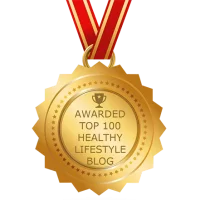Chronic stress over a long period of time affects your nervous system, immune system, and endocrine system. Not only does too much period deplete your body of nutrients, leaving you feeling exhausted, it also alters your body’s biochemistry, making it more likely to crave and overeat junk food and storing weight.
Excess stress hormones in the body encourage fat storage making it harder to lose any excess weight. The foods we consume have a powerful effect on our minds and bodies, and poor nutrition can only make stress worse. Eating heathy and making lifestyle changes can help diminish the harmful effects of stress. Here are some foods to avoid when you are stressed out.
Processed foods: Includes any foods that are not natural, made with preservatives that come in a package. Consuming processed foods, which are loaded with preservatives and unnatural ingredients, impairs our ability to tackle stress. As a general rule, avoid the middle aisles of your grocery store, which usually contain canned and boxed foods, instead shop on the perimeter for whole foods.
Refined carbohydrates: Stay away from white flour, found in white bread and pastries, and also avoid pastas and white rice. These foods are inflammatory and tend to put a strain on your digestive system, creating an additional internal stressor. Instead substitute white flour products for whole wheat. If you have sensitivity to wheat products opt for gluten-free options prepared with almond or coconut flour.
Sugar and Artificial Sweeteners: Sugar is one the most difficult things to avoid when we’re stressed, but it’s the important thing to avoid. Our bodies naturally crave comfort foods like ice cream and chocolate when we’re stressed. When we’re stressed our cortisol levels rise and send a message to our brain that we need sugar to sustain our energy in case we need to fight or flee from a life-threatening situation. So next time your sugar cravings creep in, opt for dark chocolate or fruit instead.
Alcohol: It affects our liver and can disrupt hormones. Alcohol actually acts as a depressant in your nervous system and disrupts your deep sleep by increasing cortisol levels in the body. By drinking alcohol and less quality sleep, you become less able to successfully manage stress.
Caffeine: If you are having one cup of coffee in the morning, that’s okay. Caffeine is not the enemy. But consuming excess amount of caffeine could have harmful effects, including disrupting our adrenals and nervous system.
What Should You Eat and Do When You’re Stressed Out?
Not only should you avoid the harmful foods listed above, but you should also ramp up your consumption of the right foods. Make sure you are getting all your nutrients from your food. Eat a well-balanced whole-foods diet that includes healthy fats, lean protein, whole grains, nuts, seeds, fruits and plenty of vegetables. Be sure to drink plenty of water and boost your intake of necessary vitamins and minerals that have been proven to help fight stress, which includes:
- Vitamin C: oranges, blueberries, lemons and limes
- B-complex vitamins: fish, poultry, eggs, almonds, bananas, oatmeal, avocado, spinach, and asparagus
- Magnesium: spinach, bananas, nuts, pumpkin seeds, and dark chocolate
- Omega-3 fatty acids: nuts, seeds, salmon
- Beta-carotene: found in fresh, brightly colored fruits and vegetables
- Bioflavonoids and Polyphenols: found in spices, tea, green tea and garlic
You can also help manage stress by exercising, increasing social support, and incorporating relaxation strategies like meditation, yoga, and deep breathing exercises.





